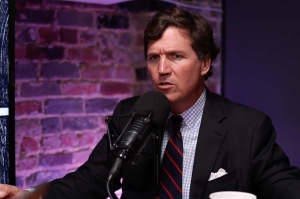Report Reveals Ineffectiveness of Methodist Structures
As United Methodists in the U.S. continue to count losses in worship attendance and membership, the denomination is re-evaluating its structures and making efforts to identify and address the challenges it faces.
A newly released report by the denomination gave "below average" grades to the body's governance and agencies as it cited a lack of mission clarity and accountability, among other things, within The United Methodist Church.
"The agencies are a cacophony of voices," the report, titled "Operational Assessment Project," cited one surveyed Methodist as saying. "[T]heir 'brands and communications compete with one another' and result in confusion and dilution of impact at the Annual Conference and Local Church levels."
Annual conferences are the denomination's regional bodies.
The United Methodist Church employed the help of an independent consulting firm to review and evaluate the decision-making, governance and leadership effectiveness of its structures and processes. Findings from the report are intended to provide input to the Call to Action Steering Team, which was charged with presenting a plan that will reorder the life of the church body for greater effectiveness and vitality, particularly in the "mission of making disciples of Jesus Christ for the transformation of the world."
For the assessment, Apex Healthcare Group surveyed 423 church leaders, agency executives, seminary heads and staff from regional bodies, and also conducted approximately 15 hours of informal interviews and over 50 hours of formal ones.
More than half of survey respondents rated the UMC's highest governing body, the General Conference, as below average in effectiveness in such areas as decision-making and in making disciples for Jesus Christ.
"You cannot manage through legislation," said an interviewee.
The report concluded that the denomination's reliance on management through legislation "is leading to an increasingly rigid and rule bound culture during a period of time when the Church is attempting to adapt to a changing environment and accomplish the transitioning of its generation bound structure from the older to the younger generations."
And "this phenomenon is a major 'blocking force' which is not only frustrating the Church's overall mission effectiveness, connectional spirit and affordability, but also its relevancy," the report reads.
"Our conclusion is that the Church is confronting a 'creeping crisis' of both internal and external origin and that the crisis is primarily a crisis of 'relevancy' – both internal and external."
Below average grades were also given to the denomination's ministry and program agencies, including the General Board of Discipleship, the General Board of Global Ministries, United Methodist Communications, and General Commission on the Status & Role of Women. They scored below average in terms of competencies to make decisions, ability to deliver results and to resolve conflict, and ability to lead in the effective and efficient use of financial and human resources, among other things.
Additionally, some of the interviewees conveyed that the UMC's mission is not communicated in common script/language, is not articulated consistently, is too complex and ambiguous and is not communicated in an inspiring fashion. They also cited trust as a major challenge and a root cause for under-functioning structures and processes.
"Sources of distrust ranged from 'old wounds' to representative and/or protectionist behaviors and agendas that were not putting the broad interests of the Church first," the report reads. Lack of accountability was also cited as a factor of distrust.
A majority of interviewees also expressed a hunger for courageous leadership but said the UMC's rule bound and prescriptive culture was a cause for lack of "leadership culture" (risk taking, ability to make mistakes, innovation).
Neil Alexander, a steering team member, told the United Methodist News Service that they "must accept the implicit criticisms and make changes that address them."
"Many of us share deep concern that overall the UMC is not seeing the magnitude and quality of results we aspire to achieve."
The United Methodist Church is the second largest Protestant denomination in the country with 7.9 million members. While membership in the global United Methodist body grew by 14 percent, the U.S. church has seen decline every year since 1968.



























